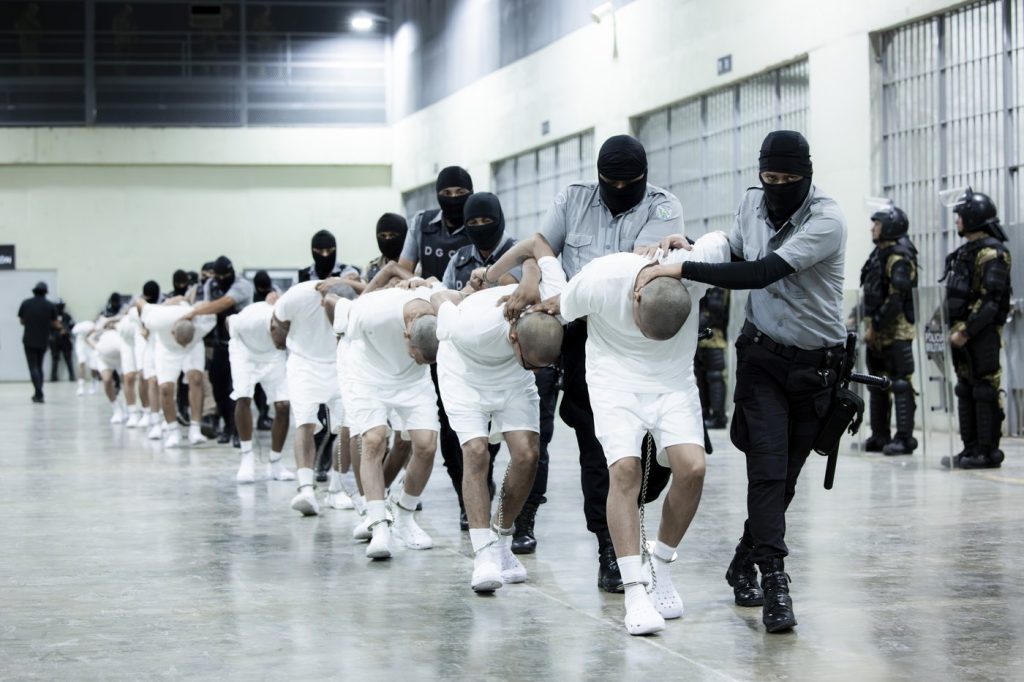On March 15, 2025, Homeland Security Secretary Kristi Noem embarked on a three-day trip to El Salvador, during which she visited the high-security prison known as the Terrorism Confinement Center. This facility holds Venezuelans whom the Trump administration has alleged are members of the Tren de Aragua gang. The visit aims to underscore the administration's effort in showcasing its immigration enforcement policies, marking a significant commitment to what has been described as deporting "the worst of the worst."
Noem, who has been a prominent figure in immigration advocacy under the Trump administration, has participated in various immigration enforcement operations, including riding with Border Patrol agents and appearing in media campaigns that encourage undocumented individuals to self-deport. Her visit to the El Salvador prison, characterized by overcrowded conditions where inmates are not permitted outside, aligns with these enforcement efforts.
During her visit, Noem also met with President Nayib Bukele. This interaction comes against the backdrop of the recent removal of Venezuelans from the U.S. under the controversial Alien Enemies Act of 1798, which grants presidential powers to deport noncitizens without a hearing before immigration or federal courts. The U.S. government has argued that such measures are necessary to address the perceived threat posed by the Tren de Aragua gang.
A significant concern raised regarding these deportees is their legal status and potential for release from the prison, as they are not serving any formal sentences. After their removal, they ceased to be listed in U.S. Immigration and Customs Enforcement's detainee locator, and many reportedly lack criminal records. In an unusual legal twist, a federal judge issued a verbal order to halt deportations around the time of these flights, leading to confusion over whether such directions would apply to ongoing operations.
White House press secretary Karoline Leavitt reported that approximately 261 individuals were deported, including 137 under the Alien Enemies Act. In El Salvador, conditions in prisons have been tightly controlled under the Bukele administration, which has made harsh prisons a hallmark of its anti-crime strategy. The Terrorism Confinement Center can accommodate up to 40,000 inmates, with cells designed to hold between 65 to 70 prisoners at a time.
Notably, the inmates at this prison cannot receive visitors, and there are no educational or rehabilitative programs available to them. The lack of consular support for the Venezuelans, due to the absence of diplomatic relations between El Salvador and Venezuela since 2019, has compounded their plight. Recently, lawyers representing them filed habeas corpus petitions to contest their detention.
Footage released by the El Salvador government displayed the deportees being escorted onto a tarmac, shackled and handled aggressively by officers. The subsequent process of their transfer to the prison included humiliating protocols, such as head shaving and being provided with a standardized prison uniform.
Furthermore, El Salvador has been under a state of emergency for three years, during which fundamental rights have been suspended in an effort to combat gang violence. This has resulted in the arrest of approximately 84,000 individuals accused of gang affiliations, often without due legal processes. The situation of the Venezuelan deportees remains precarious as the legal framework governing their detention and eventual potential release remains ambiguous.











